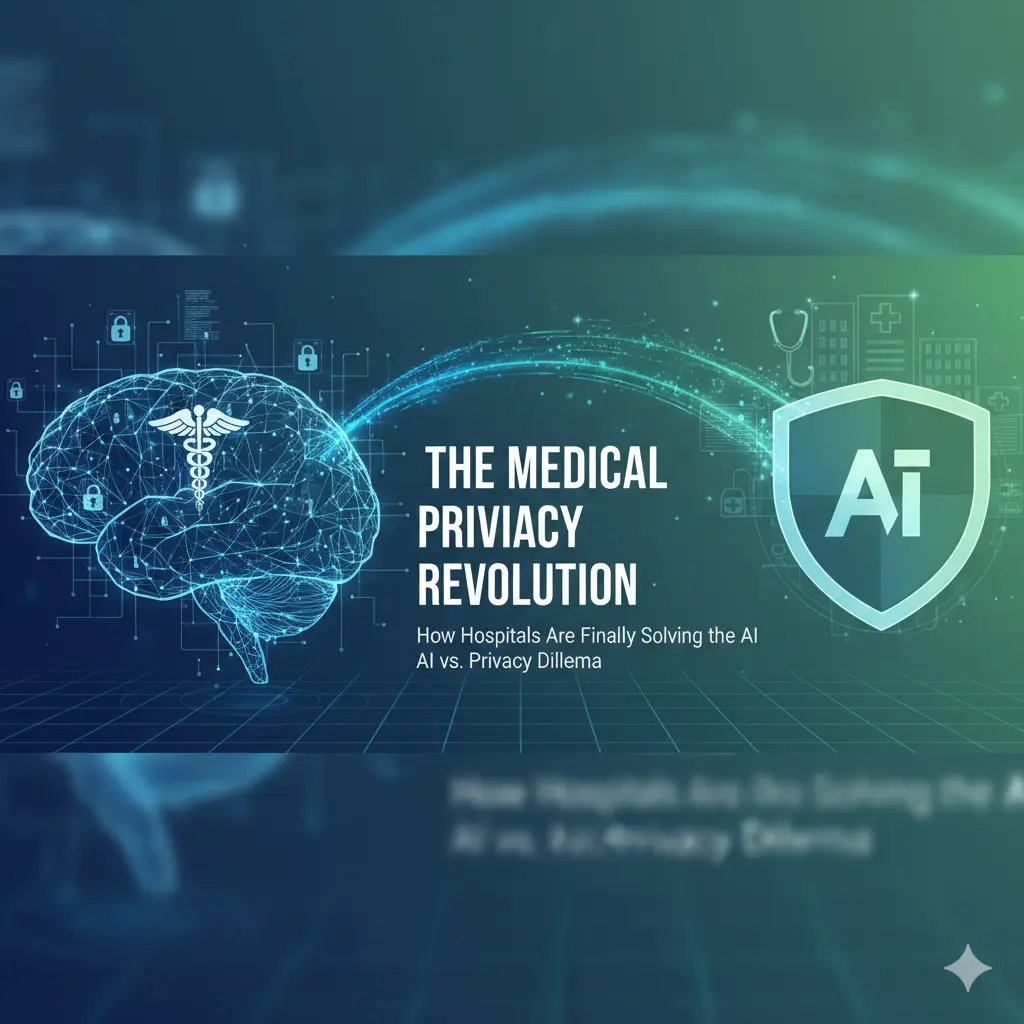Picture this: Your local hospital’s AI can predict heart attacks 24 hours before they happen with 94% accuracy. It’s already saved dozens of lives this month. But here’s the catch – to make these predictions, it needs access to the private medical records of every patient in the hospital network.
Would you trust them with your most intimate health data?
For years, this has been healthcare’s impossible choice: revolutionary AI that saves lives, or patient privacy. But what if I told you that choice is about to disappear entirely?
The $11 Million Problem
Healthcare data breaches aren’t just embarrassing headlines – they’re financial disasters. The average healthcare breach now costs $10.93 million, making it the most expensive type of data breach across all industries. But the real cost isn’t measured in dollars.
When hackers steal your credit card, you get a new number. When they steal your medical data – your genetic information, mental health records, prescription history – that’s permanent. You can’t get new DNA.
This is why hospitals have been stuck in a frustrating paradox. They know AI could revolutionize patient care, but they’re terrified of the privacy risks. So they either:
- Skip AI entirely (and miss life-saving opportunities)
- Use AI with limited data (and get mediocre results)
- Take the privacy risk (and pray they don’t become the next headline)
None of these options are acceptable anymore.
The Breakthrough That Changes Everything
Enter Fully Homomorphic Encryption (FHE) – a technology that sounds like science fiction but is already transforming hospitals worldwide.
Here’s the magic: FHE lets AI analyze medical data while keeping it completely encrypted. The AI never sees the actual patient information, yet it can still make accurate predictions, diagnoses, and recommendations.
Think of it like having a brilliant doctor who can help patients through a soundproof, one-way mirror. They can see the symptoms and recommend treatments, but they never learn the patient’s name, face, or personal details.
Real Hospitals, Real Results
This isn’t theoretical. Here’s what’s happening right now:
Dana-Farber Cancer Institute is using FHE to analyze cancer survival data from 623 patients. Their encrypted AI achieved the same accuracy as traditional methods – down to 5 decimal places – while keeping every patient record completely private.
Rural hospitals participating in a $6 million government program are pooling their encrypted data to research rare diseases. For the first time, small hospitals can collaborate on major medical research without legal nightmares or privacy concerns.
Medical imaging centers are sharing encrypted MRI and X-ray data to train AI systems that can spot early-stage cancers. The AI gets smarter with every scan, but individual patient images remain completely private.
Why This Matters Beyond Privacy
FHE isn’t just solving privacy problems – it’s unlocking collaboration that was impossible before.
Imagine if every cancer center could safely share their treatment data. We’d have AI trained on millions of cases instead of thousands. Rare diseases wouldn’t be so rare in the data. Medical breakthroughs would accelerate exponentially.
Rural hospitals could access the same AI capabilities as major medical centers. Developing countries could contribute to global health research without compromising patient privacy. Clinical trials could include vastly more diverse populations.
This is the future FHE makes possible: global medical collaboration without privacy trade-offs.
The Investment Rush
Smart money is already flowing. Zama, the leading FHE company, just became the first “privacy unicorn” with over $130 million in funding. Major tech companies like Microsoft, IBM, and Intel are racing to integrate FHE into their healthcare platforms.
The message is clear: the market believes FHE will be as fundamental to healthcare as HIPAA compliance.
What This Means for You
Whether you’re a patient, healthcare provider, or health tech entrepreneur, FHE changes the game:
For Patients: Your medical data can contribute to life-saving research and better AI diagnostics without sacrificing your privacy. No more choosing between helping others and protecting yourself.
For Healthcare Providers: You can use cutting-edge AI, collaborate with other institutions, and comply with privacy regulations – all at the same time. No more impossible trade-offs.
For Entrepreneurs: The privacy-preserving healthcare AI market is wide open. FHE enables business models that were legally impossible before.
The Bottom Line
We’re witnessing the beginning of a medical privacy revolution. For the first time in history, we can have our cake and eat it too – powerful AI that saves lives and ironclad privacy protection.
The hospitals implementing FHE today aren’t just protecting their patients’ privacy. They’re gaining competitive advantages, enabling new research collaborations, and preparing for a future where privacy-preserving AI isn’t optional – it’s essential.
The question isn’t whether FHE will transform healthcare. It’s whether you’ll be part of the transformation or left behind by it.
Ready to explore how privacy-preserving AI could revolutionize your healthcare organization? At Aunova, we specialize in implementing cutting-edge privacy technologies that don’t compromise on performance. Contact us to discover what’s possible when privacy meets innovation.
